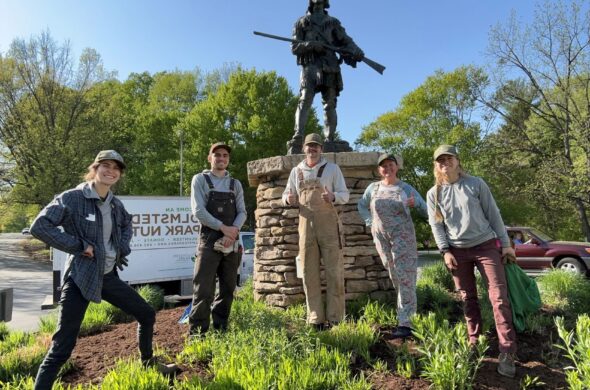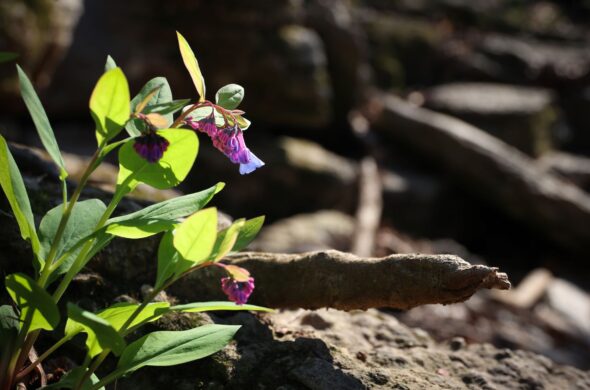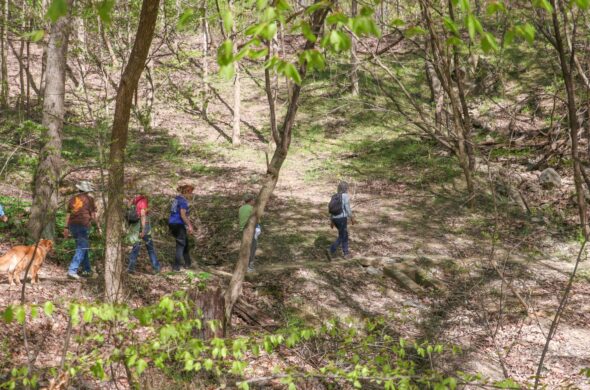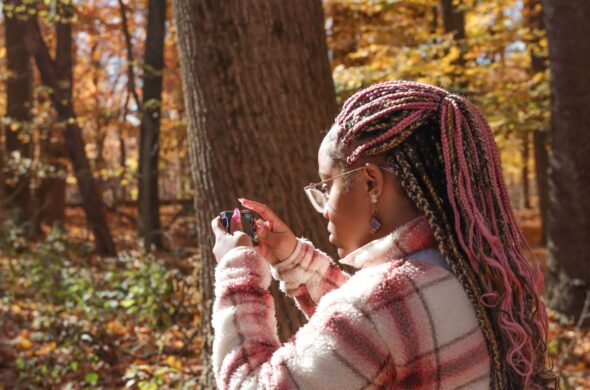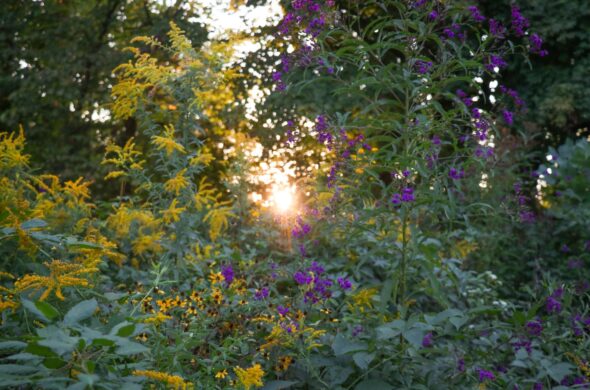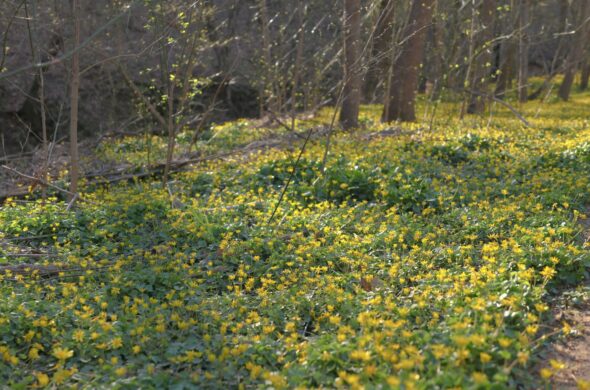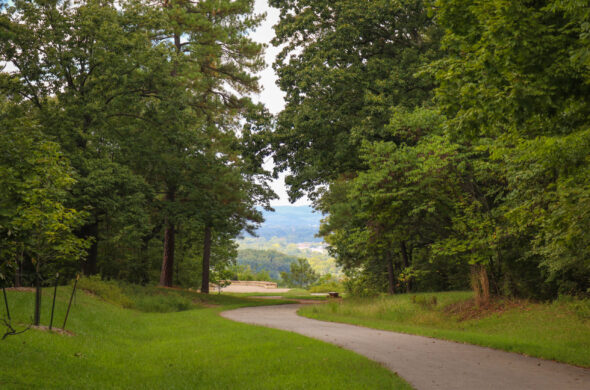

Our goggle-wearing “mad scientists” are tending small plots of land in Cherokee Park. This part of the exciting two-year organic herbicide research study in partnership with the Institute for Healthy Air, Water and Soil.
The first organic herbicide tested is derived from geraniums, and the second type is a combination of clove and cinnamon oils. Our team is tracking how long it takes an herbicide to kill invasive plants as well as other effects in the testing areas. Results will help us determine the best practices for keeping the Olmsted Parks healthy. Check back later for more updates!
MARCH 28, 2016: The health of the parks and their resulting impact on our community are very important to Olmsted Parks Conservancy. It’s why we are pleased to announce a pioneering research study in partnership with the Institute for Healthy Air, Water and Soil. The study will allow for thorough investigation of non-synthetic treatment methods as we continue to rid Olmsted Parks of invasive plants.
For the last ten years, the Conservancy has cleared the parks of invasive plants to improve the ecosystem and promote tree regrowth. Our Team for Healthy Parks has used a variety of removal techniques, including synthetic herbicides, to tackle invasive plant management. Now, in collaboration with University of Louisville’s Dr. Margaret Carreiro, we will study new treatment methods including organic herbicides; grazing mammals, such as goats; and utilizing shade cloth on ground cover to slow or stop photosynthesis, thus eventually killing the plant.

“We have discussed for several years using goats to eradicate unwanted plants in the Olmsted Parks and now we finally have the funding to study the effectiveness of this method,” stated Major Waltman, Project Director.
We anticipate that the investigation will take place over twenty-four months, to allow for two growing seasons to be evaluated in the project. Upon completion, the potentially groundbreaking and results will be submitted for publication in a scientific journal.

FEBRUARY 4, 2016: Thanks to a $100,000 grant Olmsted Parks Conservancy will be investigating alternatives to the synthetic herbicides used to remove invasive plant species. Over the next two years the investigation will offer a more natural way to fight back against invasive plant species and hopefully give us a better option in the future to tackle this problem. The Conservancy, in partnership with the Institute for Healthy Air, Water, and Soil, is working with Margaret Carreiro at the University of Louisville will use organic herbicides along with Grazing Goats as alternatives. We plan to start this process by the end of April and look forward to seeing the results.

Find something similar: Cherokee Park Seneca Park
